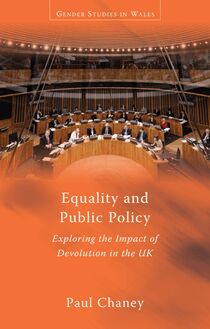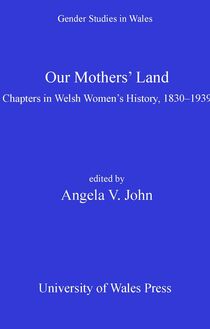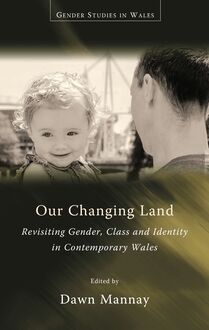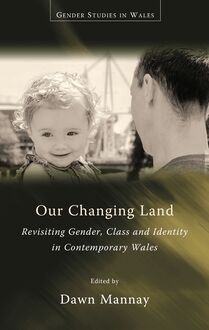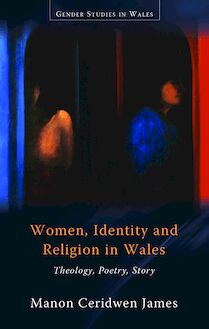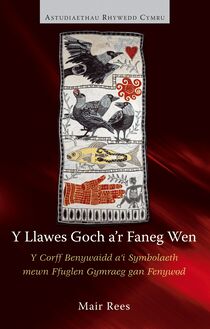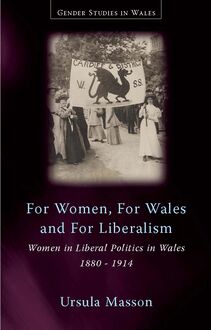-
 Univers
Univers
-
 Ebooks
Ebooks
-
 Livres audio
Livres audio
-
 Presse
Presse
-
 Podcasts
Podcasts
-
 BD
BD
-
 Documents
Documents
-
- Cours
- Révisions
- Ressources pédagogiques
- Sciences de l’éducation
- Manuels scolaires
- Langues
- Travaux de classe
- Annales de BEP
- Etudes supérieures
- Maternelle et primaire
- Fiches de lecture
- Orientation scolaire
- Méthodologie
- Corrigés de devoir
- Annales d’examens et concours
- Annales du bac
- Annales du brevet
- Rapports de stage
La lecture à portée de main
Découvre YouScribe en t'inscrivant gratuitement
Je m'inscrisGendering Border Studies , livre ebook
Découvre YouScribe en t'inscrivant gratuitement
Je m'inscrisEn savoir plus
En savoir plus

Description
Introduction Henrice Altink and Chris Weedon I. MIGRATION AND GENDER 1 Outside the border of the modern: Mexican migration and the racialized and gendered dynamics of US national belonging Deborah Cohen, University of Missouri - Saint Louis 2 Accented margins: gendering the borders of diaspora Janet Bauer, Trinity College (Hartford, CT) 3 Brazilian women crossing borders: erotic dancers in New York city Suzana Maia, Federal University of Bahia (UFBA), Brazil 4 Teacher supply and the Wales-England border, 1922-50: a gendered perspective Sian Rhiannon Williams, University of Wales Institute, Cardiff II. GENDERED NARRATIVES OF BORDER CROSSING 5 Reading gender in border-crossing narratives Johan Schimanski, University of Tromso, Norway 6 Taking sides: power-play on the Welsh border in early twentieth-century women's writing Jane Aaron 7 'Those blue remembered hills': gender in twentieth-century Welsh border writing by men Katie Gramich, Cardiff University III. GENDER AND THE DRAWING OF INTERNAL BORDERS 8 Crossing intimate borders: gender, settler colonialism, and the home Margaret D. Jacobs, University of Nebraska-Lincoln 9 Scottishness and gender history in a cross-border/international context: re-inventing the border? Sian Reynolds, Stirling University 10 Sexual/cultural hybridity in the 'new' South Africa: emergent sites of transnational queer politics William J. Spurlin, University of Sussex 11 The construction and negotiation of racialised borders in Cardiff docklands Chris Weedon and Glenn Jordan, University of Glamorgan IV. TEACHING GENDERED BORDERS 12 Locating the 'border' in gender: creating coherence in border pedagogy Jocelyn C. Ahlers and Kimberley Knowles-Yanez, California State University San Marcos
Sujets
Informations
| Publié par | University of Wales Press |
| Date de parution | 15 juin 2010 |
| Nombre de lectures | 1 |
| EAN13 | 9780708323113 |
| Langue | English |
| Poids de l'ouvrage | 5 Mo |
Informations légales : prix de location à la page 0,0650€. Cette information est donnée uniquement à titre indicatif conformément à la législation en vigueur.
Extrait
Gender pages (new):Layout 1 23/6/11 15:10 Page i
GENDERING BORDER STUDIESGender pages (new):Layout 1 23/6/11 15:10 Page ii
Gender Studies in Wales
Astudiaethau Rhywedd yng Nghymru
Series Editors
Jane Aaron, University of Glamorgan
Brec’hed Piette, Bangor University
Sian Rhiannon Williams, University of Wales Institute Cardiff
Series Advisory Board
Deirdre Beddoe, Emeritus Professor
Mihangel Morgan, Aberystwyth University
Teresa Rees, Cardiff University
The aim of this series is to fill a current gap in knowledge. As a number
of historians, sociologists and literary critics have for some time been
pointing out, there is a dearth of published research on the
characteristics and effects of gender difference in Wales, both as it affected lives
in the past and as it continues to shape present-day experience. Socially
constructed concepts of masculine and feminine difference influence
every aspect of individuals’ lives; experiences in employment, in
education, in culture and politics, as well as in personal relationships, are all
shaped by them. Ethnic identities are also gendered; a country’s history
affects its concepts of gender difference so that what is seen as
appropriately ‘masculine’ or ‘feminine’ varies within different cultures. What
is needed in the Welsh context is more detailed research on the ways in
which gender difference has operated and continues to operate within
Welsh societies. Accordingly, this interdisciplinary and bilingual series
of volumes on Gender Studies in Wales, authored by academics who
are leaders in their particular fields of study, is designed to explore the
diverse aspects of male and female identities in Wales, past and present.
The series is bilingual, in the sense that some of its intended volumes
will be in Welsh and some in English.Gender pages (new):Layout 1 23/6/11 15:10 Page iii
GENDERING BORDER
STUDIES
Edited by
Jane Aaron, Henrice Altink
and Chris Weedon
CARDIFF
UNIVERSITY OF WALES PRESS
2010TIMES NR MT Gender 21_6 _2011:Layout 1 22/06/2011 16:02 Page iv
© The Contributors, 2010
Reprinted 2011
All rights reserved. No part of this book may be reproduced in any material
form (including photocopying or storing it in any medium by electronic
means and whether or not transiently or incidentally to some other use of this
publication) without the written permission of the copyright owner except in
accordance with the provisions of the Copyright, Designs and Patents Act
1988. Applications for the copyright owner’s written permission to reproduce
any part of this publication should be addressed to the University of Wales
Press, 10 Columbus Walk, Brigantine Place, Cardiff CF10 4UP.
www.uwp.co.uk
British Library Cataloguing-in-Publication Data
A catalogue record for this book is available from the British Library.
ISBN 978-0-7083-2170-6
e-ISBN 978-0-7083-2311-3
The rights of the Contributors to be identified as authors of this work have
been asserted by them in accordance with sections 77, 78 and 79 of the
Copyright, Designs and Patents Act 1988.
Printed by Lightning SourceGender pages (new):Layout 1 23/6/11 15:10 Page v
Contents
Notes on Contributors vii
Introduction 1
Henrice Altink and Chris Weedon
I. MIGRATION AND GENDER
1 Outside the Border of the Modern: Mexican
Migration and the Racialized and Gendered
Dynamics of US National Belonging 19
Deborah Cohen
2 Accented Margins: Gendering the Borders
of Diaspora 36
Janet Bauer
3 Brazilian Women Crossing Borders 63
Suzana Maia
4 Teacher Supply and the Wales–England Border,
1922–1950: a Gendered Perspective 83
Sian Rhiannon Williams
II. GENDERING NARRATIVES
OF BORDER CROSSING
5 Reading Gender in Border-crossing Narratives 105
Johan SchimanskiGender pages (new):Layout 1 23/6/11 15:10 Page vi
6 Taking Sides: Power-play on the Welsh Border
in Early Twentieth-century Women’s Writing 127
Jane Aaron
7 ‘Those Blue Remembered Hills’: Gender in
Twentieth-century Welsh Border Writing by Men 142
Katie Gramich
III. GENDER AND THE DRAWING OF
INTERNAL BORDERS
8 Crossing Intimate Borders: Gender, Settler
Colonialism and the Home 165
Margaret D. Jacobs
9 Scottishness and Gender History in a Cross-border/
International Context: Reinventing the Border? 192
Siân Reynolds
10 Sexual/Cultural Hybridity in the ‘New’ South Africa:
Emergent Sites of Transnational Queer Politics 208
William J. Spurlin
11 The Construction and Negotiation of Racialized
Borders in Cardiff Docklands 222
Glenn Jordan and Chris Weedon
IV. TEACHING GENDERED BORDERS
12 Locating the ‘Border’ in Gender: Creating Coherence
in Border Pedagogy 243
Jocelyn C. Ahlers and Kim Knowles-Yánez
Index 272Gender pages (new):Layout 1 23/6/11 15:10 Page vii
Notes on Contributors
JANE AARON is a professor of English at the University of Glamorgan,
where she teaches Welsh writing in English and research skills. Her
recently published books include Nineteenth-Century Women’s
Writing in Wales: Nation, Gender and Identity (University of Wales
Press, 2007), which was awarded the Roland Mathias Prize in 2009.
JOCELYN C. AHLERS is associate professor of linguistics in the Liberal
Studies Department at California State University San Marcos. Her
areas of research include gender and language, language socialization,
cognitive linguistics and the documentation and revitalization of
endangered Native California languages.
HENRICE ALTINK is a lecturer in modern history at the University of
York. She has published on representations of slave women in
discourses of slavery and abolition and is currently studying the
ideologies of femininity in the African Jamaican community between
1865 and 1938.
JANET BAUER, former director of the Women, Gender, and Sexuality
Program, teaches at Trinity College (Hartford, CT). Her research and
publications focus on the consequences of migration and resettlement
for women and families in Muslim communities. Her translation of a
Persian memoir, I am Raziye: The Life of an Iranian Woman Political
Activist is forthcoming.
DEBORAH COHEN has a position in history at the University of
Missouri-Saint Louis. She has published in various journals, among
them Journal of American Ethnic History, Hispanic American Historical
Review, Estudios Sociológicos and International Labor and WorkingGender pages (new):Layout 1 23/6/11 15:10 Page viii
Notes on Contributors
Class History, and her co-edited volume, Sex and Gender in 1968:
Transformative Politics in the Cultural Imagination, was recently
published with Palgrave Macmillan. In addition, her book, Braceros:
Migrant Citizens and Transnational Subjects in Postwar United States
and Mexico, will be published by University of North Carolina Press
in September 2010.
KATIE GRAMICH is a reader in English literature at Cardiff University.
She has research interests in modern Welsh writing in English, Welsh
women’s writing, and postcolonial and travel literature. Her most recent
publication is Twentieth-Century Women’s Writing in Wales: Land,
Gender, Belonging (University of Wales Press, 2007).
MARGARET JACOBS is a professor of history and the director of
women’s and gender studies at the University of Nebraska-Lincoln.
Her book, White Mother to a Dark Race: Settler Colonialism,
Maternalism, and the Removal of Indigenous Children in the American West
and Australia, 1880–1940, was published by the University of
Nebraska Press in 2009.
GLENN JORDAN, a reader in cultural studies at the University of
Glamorgan and director of Butetown History & Arts Centre in
Cardiff docklands, has published widely on visual culture, race,
representation and immigrants and minorities in Wales. His books
include Cultural Politics (with Chris Weedon, 1994) and Somali
Elders: Portraits from Wales (2004). He is currently writing Race for
Routledge’s New Critical Idiom series.
KIM KNOWLES-YÁNEZ is associate professor of urban and regional
planning in the Liberal Studies Department at California State
University San Marcos. Her areas of research include land use and
community planning, public participation, and children’s issues.
SUZANA MAIA is Professor at Universidade Federal do Recôncavo da
Bahia (UFRB), Brazil, investigating the role of anthropologists in the
political organizing of indigenous people in Bahia. Her Ph.D., from
the City University of New York, focused on Brazilian women
immigrants who worked in the sex industry in that city, looking at issues
such as transnationalism, postcolonialism, gender and sexuality.
viiiGender pages (new):Layout 1 23/6/11 15:10 Page ix
Notes on Contributors
SIÂN REYNOLDS is emerita professor of French at Stirling University,
a co-editor of the Biographical Dictionary of Scottish Women (2006)
and a founder member of Women’s History Scotland. Her latest book
is Paris– Edinburgh: Cultural Connections in the Belle Epoque (2007).
JOHAN SCHIMANSKI is associate professor of comparative literature at
the Department of Culture and Literature, University of Tromsø,
Norway. He has worked on literary forgeries, literature in Welsh,
science fiction, genre theory, national identity in literature,
postcolonialism and arctic discourses. Co-leader of the border poetics
working group at the University of Tromsø, he co-edited (with
Stephen Wolfe) the anthology Border Poetics De-Limited (Wehrhahn,
2007).
WILLIAM J. SPURLIN is Professor of English at the University of Sussex
where he also directs the Centre for the Study of Sexual Dissidence
and Cultural Change. His most recent books are Imperialism within
the Margins: Queer Representation and the Politics of Culture in
Southern Africa (2006) and Lost Intimacies: Rethinking Homosexuality
under National Socialism (2008). He has published widely in queer and
postcolonial studies and in twentieth-century comparative literature and
culture.
CHRIS WEEDON is director of the Centre for Critical and Cultural
Theory at Cardiff University. Her books include Feminist Practice and
Poststructuralist Theory (1987); Cultural Politics (with Glenn Jordan,
1994); Postwar Women’s Writing in German (ed., 1997); Feminis
-
 Univers
Univers
-
 Ebooks
Ebooks
-
 Livres audio
Livres audio
-
 Presse
Presse
-
 Podcasts
Podcasts
-
 BD
BD
-
 Documents
Documents
-
Jeunesse
-
Littérature
-
Ressources professionnelles
-
Santé et bien-être
-
Savoirs
-
Education
-
Loisirs et hobbies
-
Art, musique et cinéma
-
Actualité et débat de société
-
Jeunesse
-
Littérature
-
Ressources professionnelles
-
Santé et bien-être
-
Savoirs
-
Education
-
Loisirs et hobbies
-
Art, musique et cinéma
-
Actualité et débat de société
-
Actualités
-
Lifestyle
-
Presse jeunesse
-
Presse professionnelle
-
Pratique
-
Presse sportive
-
Presse internationale
-
Culture & Médias
-
Action et Aventures
-
Science-fiction et Fantasy
-
Société
-
Jeunesse
-
Littérature
-
Ressources professionnelles
-
Santé et bien-être
-
Savoirs
-
Education
-
Loisirs et hobbies
-
Art, musique et cinéma
-
Actualité et débat de société
- Cours
- Révisions
- Ressources pédagogiques
- Sciences de l’éducation
- Manuels scolaires
- Langues
- Travaux de classe
- Annales de BEP
- Etudes supérieures
- Maternelle et primaire
- Fiches de lecture
- Orientation scolaire
- Méthodologie
- Corrigés de devoir
- Annales d’examens et concours
- Annales du bac
- Annales du brevet
- Rapports de stage
